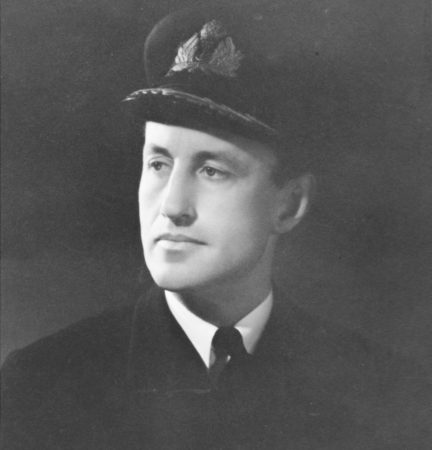One of the things that has made it so fun to research these various World War II stories is how, after a while, people and their stories begin to overlap. In other words, you find various individuals showing up in multiple events connected by other participants or just being within the same orbit. One of these human “conduits” was Ian Fleming (1908−1964), the author of the James Bond novels.
During World War II, Fleming was a commander in the Royal Naval Volunteer Reserve (same rank and naval group as James Bond). He worked for The Admiralty in the Naval Intelligence Division as Rear Admiral John Godfrey’s personal assistant (codename: “17F”). Fleming had all of his fingerprints on military operations such as Mincemeat, Ruthless, and Goldeneye. While primarily an administrator, from time-to-time, Fleming was used as a field agent. Once, he was assigned to follow one of the British double agents working to deceive Hitler into thinking that Pas-de-Calais would be the Allied target for the invasion of Europe. (click here to read the blog, The Double Cross System). Fleming’s wartime experiences provided a plethora of ideas that show up in his Bond novels (click here to read the blog, Explosive Rats) including the ingenious devices used by Bond.

After the war, Fleming bought property in Jamaica (birthplace of the fictional James Bond) and named it GoldenEye. In early 1952, Fleming began to write his first spy novel, Casino Royale, wherein the reader is introduced to James Bond. While Fleming likely based some of his characters on singular persons, many of them were composites of multiple people Fleming knew during his military career. This certainly applies to 007. Read More James Bond’s Lover


